Mississippi News
Disgraced welfare director bowed to Phil Bryant’s wishes
‘My Governor is counting on me’: Disgraced welfare director bowed to Phil Bryant’s wishes
Phil Bryant had found his yes man.
Whether the governor wanted grant funds directed to his favored vendors, a partner to proselytize for his faith-based initiatives, or for someone to keep track of his wayward distant relative, Bryant’s welfare director John Davis was eager to deliver for his boss.
It often took no more than a brief text message — sent privately — to get things done.
“Yes sir,” Davis would respond.
“Your the best,” Bryant would say.
The former Mississippi governor appointed Davis to oversee the state’s roughly $1 billion public safety net for the poor in 2016.
Text exchanges recently obtained by Mississippi Today expose the governor’s backchannel influence on that agency, which is in the middle of a massive scandal auditors say cost Mississippi taxpayers tens of millions of dollars.
Officials are accusing Davis of turning the federal block grant program called Temporary Assistance for Needy Families, most commonly known for providing the meager monthly “welfare check” to very poor families, into a slush fund.
But the aversion to providing direct cash assistance to the needy – causing welfare rolls to drop 75% and opening the door for Davis to use the bulk of the money in nonsensical ways – was the governor’s.
Over time, the agency’s alternative goal of helping people “find self-sufficiency,” became distorted by bloated, misleading campaigns posing as workforce training, parenting and youth development programs for poor families.
The changes in policy, Bryant’s influence, Davis’ eagerness to please, a cult-like atmosphere and lax oversight from state and federal authorities all contributed to the welfare agency’s failures.
From January 2016 to June 2019, when Davis served as director of the Mississippi Department of Human Services and reported directly to Bryant, auditors say at least $77 million in that agency’s taxpayer funding was misspent, millions of which have yet to be found. The governor has not been accused of any wrongdoing in the scandal.
The state could have used that money to provide a low-income family with a year’s worth of rent, electricity, child care, diapers, monthly transportation stipends, and nine meals a day – and have done the same for 2,600 more families. The number of people who could have benefitted from this is enough to fill every seat in the new volleyball stadium at the University of Southern Mississippi – which was purchased with welfare funds – eight times.
Davis, who has pleaded not guilty, is facing state embezzlement and fraud charges, a $96 million demand for repayment from the state auditor, a potential federal indictment, likely civil litigation, the risk of serious prison time and public scorn.
On the other hand, Bryant, who eventually forced Davis out of his job, has emerged unscathed.
Text messages, however, shed new light on Bryant’s involvement in the way Davis ran his department, spent welfare dollars and circumvented agency controls that should have prevented favoritism in grant awards.
Part 1: Phil Bryant had his sights on a payout as welfare funds flowed to Brett Favre
Temporary Assistance for Needy Families is a federal block grant Congress authorized during the 1996 welfare overhaul. States have broad discretion to spend this annual pot, $86.5 million in Mississippi, on programs satisfying four purposes:
- Provide direct assistance to needy families
- Promote job preparation and work
- Prevent out-of-wedlock pregnancies
- Encourage two-parent families
Investigators from the office of State Auditor Shad White, a Bryant appointee, obtained these texts more than two years ago through cellphone data dumps – but the story they tell had been concealed until now. Mississippi Today has reviewed hundreds of pages of written communication, which are reprinted here exactly as they appear without correction.
Bryant also attempted to make his own business deal with a company that was paid $2 million in allegedly stolen welfare funds, according to other texts Mississippi Today first reported. NFL legend Brett Favre had requested the money.
READ MORE: Brett Favre used fame and favors to pull welfare dollars
But the governor’s name does not appear in White’s 104-page report describing in meticulous detail the misdeeds of welfare officials and contractors, save for a line about him alerting the auditor to potential fraud. Instead, White credited Bryant as the whistleblower in the welfare scandal.
White, who has stopped publicly discussing the audit due to a gag order in the criminal case, told Mississippi Today last October that he believed it was the welfare director’s duty to reject any improper requests from the governor, not the governor’s responsibility to know agency spending regulations.
John Davis, 54, spent his whole career in the Mississippi Department of Human Services, starting as a low-level social worker at the county DHS office in Brookhaven, where he grew up. By 2005, he was promoted to the state office, where he served directly over the very program he’s now accused of defrauding.
In a typical year, MDHS manages around $1 billion in federal safety net funds, about $150 million of which it contracts to other organizations, including private nonprofits. Before Davis took over, the TANF program was catching flak not for making large purchases, but for severe underspending. When he became director, the agency had accumulated roughly $40 million in extra TANF dollars from past years, creating the opportunity for what happened next.
Much of the misspending identified by auditors in the welfare scandal occurred on the nonprofit level as Davis’ department enforced few controls. The alleged scam primarily involved TANF funds the state funneled through a program Bryant touted called Families First for Mississippi.
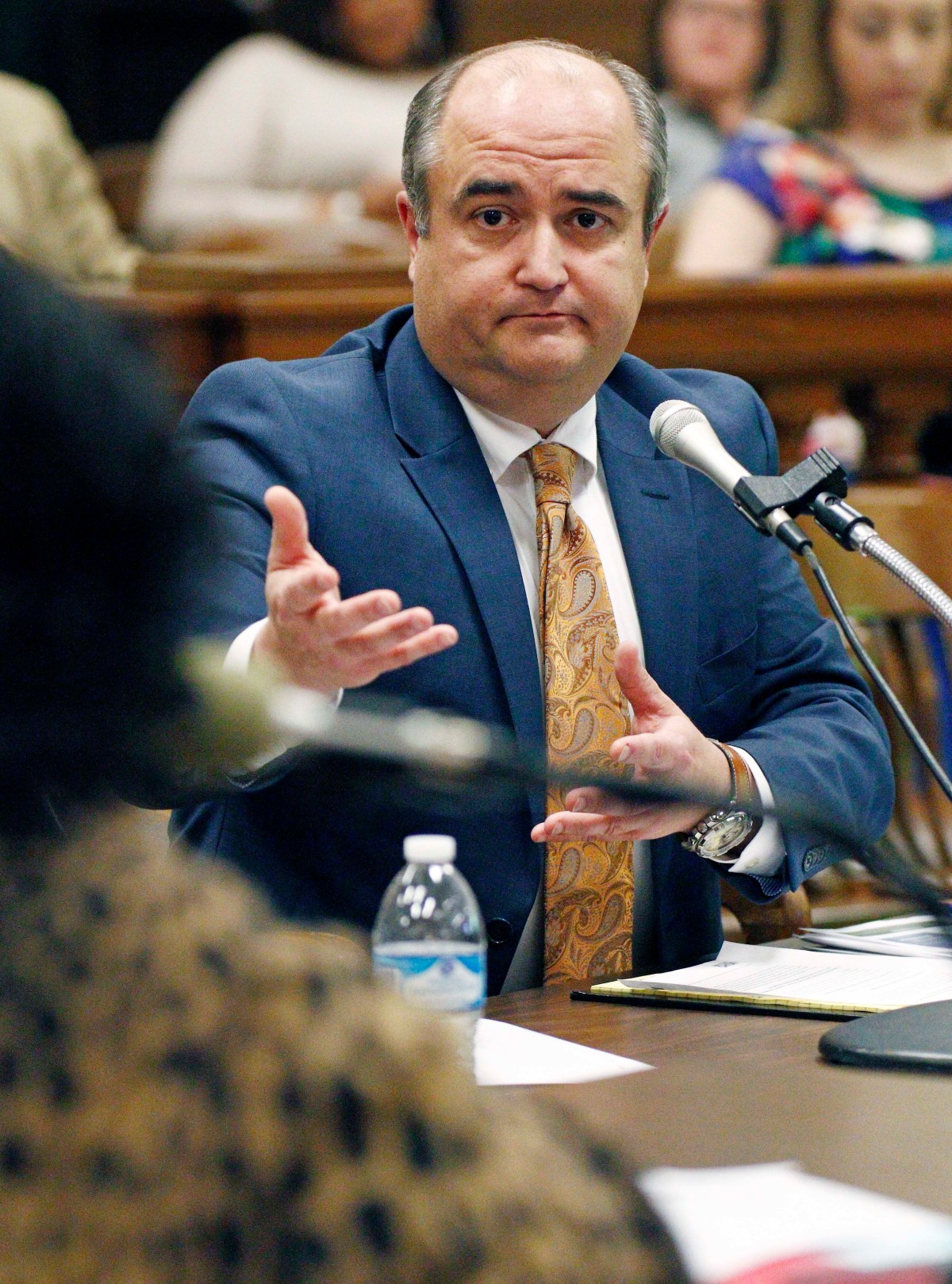
In audit reports, Davis is painted as a tyrant, as a leader who intimidated people with his unilateral control over funding and his ability to fire employees at will – a legislative change to the department that began his first year as director. But Davis wasn’t the only agency employee controlling MDHS’s finances and accounting, which was in disarray. For legal opinions and help issuing subgrants, he relied on savvy attorneys who could write grants to fit funding purposes and make expenditures without triggering a red flag in an audit.
His texts also indicate that the burden of holding the purse strings, and the barrage of requests and wheedling he received because of it, wore on Davis.
“I try to avoid him as much as possible cause he is always asking for money,” he once texted, referring to subgrantee and former football player Paul Lacoste, who ran a welfare-funded boot camp-style fitness class often attended by lawmakers and political staffers free of charge.
Davis didn’t have the luxury of ignoring the governor, so he leaned into his role as a good ole boy.
Gov. Bryant and his wife, Deborah Bryant, sometimes flattered Davis using language that seemed more familial than professional.
Just eight months into Davis’ term as director, Bryant’s wife assured him of the governor’s affection and support: “He LOVES you,” she wrote.
The lifelong government bureaucrat – a never-married, self-proclaimed “simple country boy” in his late 40s, doughy and balding – appeared to feed off the praise.
And Davis was not shy about showing his devotion to Bryant – a popular, charismatic politician who dressed in expensive suits and customized cowboy boots.
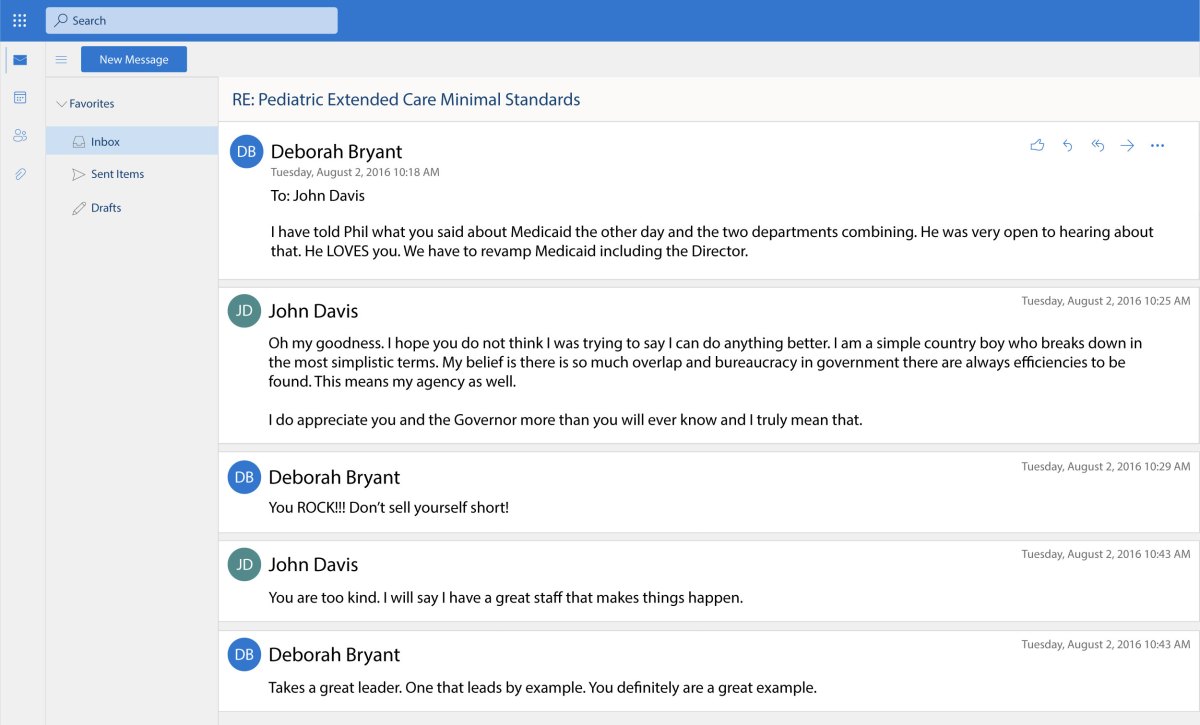
Once in 2018, when the federal human services office rejected Mississippi’s proposal for a food stamps-funded workforce project that benefitted a prominent local trucking company, Davis sent an email to a national association requesting “URGENT ASSISTANCE” to save it. “My Governor, Phil Bryant has promoted this program,” he wrote.
He ended his message with, “My Governor is counting on me.”
Bryant also enlisted Davis’ help to present an award to a business “who has partnered successfully with Families First,” emails show, and he eventually gave the award to that trucking company.
Davis and Phil Bryant shared an evangelical energy, invoking God and Christianity in their public messaging or turning government-related speeches into what sounded like sermons.
The governor and the agency bureaucrat were the front-line defenders of a 2016 law to protect the “sincerely held” religious beliefs that marriage is between one man and one woman; that people should not have sex outside such unions; and that a person’s gender is set at birth.
Bryant and Davis also enjoyed sharing the company of celebrities. The governor flaunted his proximity to country musicians, reality TV personalities or star athletes like Favre, a high-profile player in the welfare audit. He snapped selfies with actress Jennifer Garner, who represents an international humanitarian nonprofit that received millions in TANF funds from the welfare agency Bryant oversaw.
Davis, meanwhile, had become close to the family of famous retired WWE wrestler Ted DiBiase Sr., known as the “Million Dollar Man” – who was eager to promote the agency’s self-help principles through evangelism.
It was the perks Davis provided to the wrestler’s son, Brett DiBiase – including a fraudulent $48,000 contract and allegedly sending him to rehab on the welfare program’s dime – that prompted the initial investigation, blowing the larger welfare scandal wide open. Brett DiBiase pleaded guilty to a felony within the welfare scheme in 2020.
The other son, Ted “Teddy” DiBiase Jr., is the subject of a sealed federal civil investigation related to his work with the department.
Bryant had some prior connection to the wrestlers, but inside a government office that blended workplace and family, Davis developed particularly close relationships with the sons.
Since 1987, Ted DiBiase Sr. has played a classic WWE villain known for using his wealth to manipulate his opponents. In scripted, performance wrestling, they call this person a “heel.” He started a Christian ministry, through which he gets paid to speak at churches, in 2001. While he retired from wrestling in the 1990s, he still plays the character in skits on the program today.
The WWE is characterized by its portrayal of staged events and over-the-top storylines as real. These actors stay in character out of the ring, sometimes even off camera in an attempt to blur the line between reality and fiction.
Davis and Teddy DiBiase swapped Christian devotionals, traveled out of state and exercised at the gym together. Davis frequently texted the older brother, “I love you.” The welfare director flew across the country to visit Brett DiBiase while he was in drug rehab, discussed his treatment options with a specialist and called him the “son I never had.” When not together, they shared long, late-night phone calls, phone records show.
The welfare department hired the DiBiases, and their ministry, called Heart of David, for various “soft services,” such as to create a phone app to reach troubled teens and send them Bible verses. The plan was to incentivize kids to use the app by promising personalized videos from Ted DiBiase Sr. or the governor, proposals show. The app never happened. Their programs, according to audits, generally delivered few results and they didn’t report any outcomes to the state, according to Mississippi Today’s records requests.
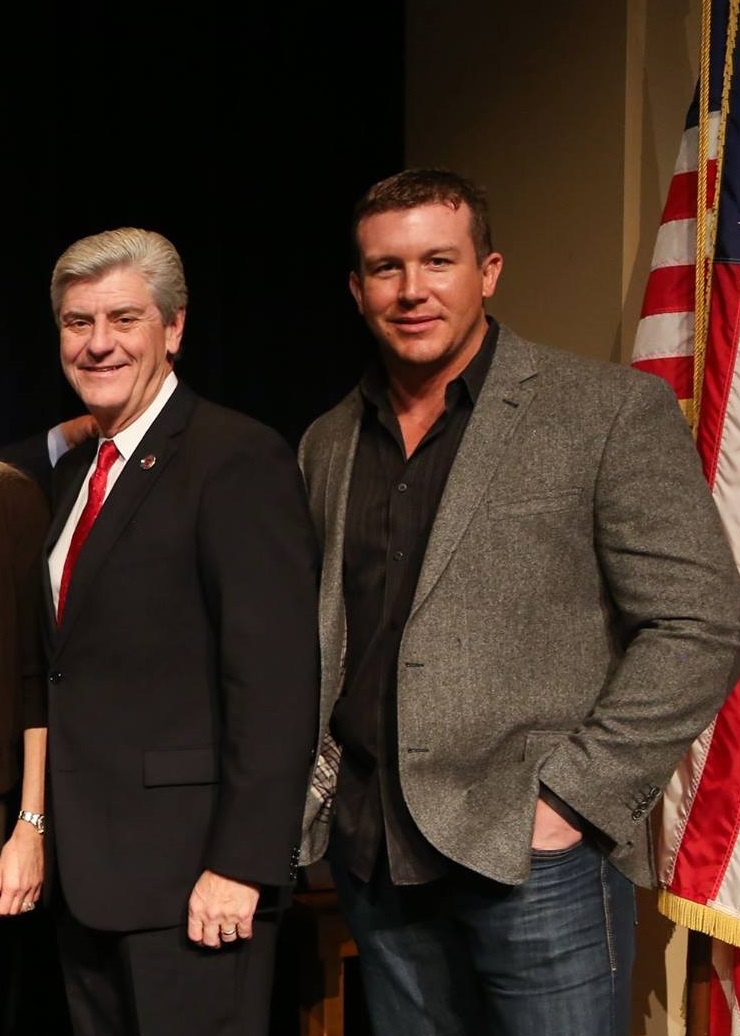
The DiBiases received more than $5 million from the welfare program in a roughly two-year span – $3.9 million of which the state auditor has demanded they return, alleging they did not fulfill the terms of their contracts. Attorneys for the wrestlers declined to comment.
The DiBiases invited Bryant and his wife to the premier of a documentary that Teddy DiBiase made about his father. On the red carpet, the photo op backdrop contained both Heart of David and Families First for Mississippi’s logos. Teddy DiBiase also sat on the advisory council for an initiative Deborah Bryant chaired and gave motivational speeches at the governor’s Healthy Teens Rallies.

While Davis’ closeness with the younger DiBiases, 39 and 34, has drawn scrutiny from investigators, Ted DiBiase Sr. believed Bryant was the one who elevated the wrestlers inside the state’s welfare program.
In an interview at a 2018 comic convention in Michigan, DiBiase Sr., 68, said that his ministry was “selected by our governor to be the face of his faith-based initiative for the state of Mississippi.”
Bryant denied this assertion, saying that people and organizations surrounding his administration often exaggerated his involvement with them for clout.
A draft proposal attached to agency emails obtained by Mississippi Today describes a plan to incorporate elements of faith within Families First for Mississippi as Bryant’s vision.
“Mississippi Governor Phil Bryant has identified the need to build capacity locally of many faith groups in Mississippi and has developed a faith-based initiative with a leader chosen to work with local communities,” the document dated May 2018 reads. “(Families First for Mississippi) will align its efforts with the Governor’s plan and will work closely with the Governor’s faith based leadership team.”
While welfare money may be spent on programs run by faith-based institutions, the federal government prohibits the state from using the money for inherently religious exercises, like worship.
A review of videos and social media posts shows that one of the only visible programs the DiBiases conducted, a four-day sports summer camp called “Ignite Sports Camp,” had the explicit goal “to reach young men for Jesus Christ.” The camp existed for years before the DiBiase ministry put its name on it. Videos from past summers show participants in the camp singing worship music.
In its report, the State Auditor’s Office also said that an MDHS subgrantee running Families First violated federal regulations when it paid to stage concerts starring Christian rock musician Jason Crabb and bought 4,000 copies of Crabb’s children’s book about the Ten Commandments in 2018. Independent auditors confirmed the book purchase was indicative of abuse and waste.
Emails show Deborah Bryant requested a lunch meeting for the governor to meet with Crabb and welfare officials in February of 2019.
The next month, Gerald Crabb, Jason Crabb’s father and also a Christian musician and ministry founder, texted Davis to thank him for what he had done for him and his son.
The welfare director told Gerald Crabb of his plan to incorporate “inner city kids” into their project. “You should hear them sing,” Davis wrote.
Davis said he envisioned them putting on a concert series with the children as the “opening act” and said that the governor and his wife were supportive of the effort.
“We had lunch with the Governor and First Lady,” Davis texted Gerald Crabb in March of 2019. “They are on board.”
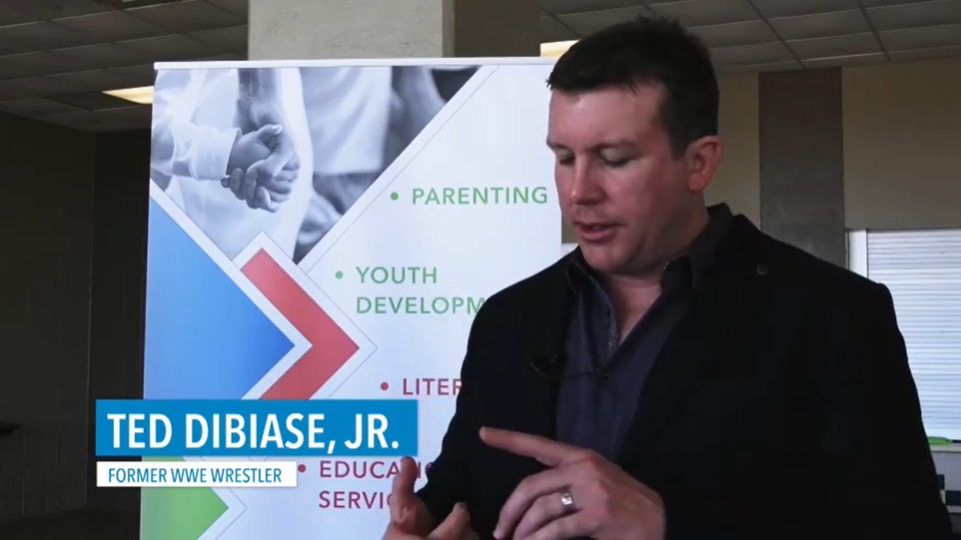
TANF, a federal block grant, is notorious in public program and policy circles for lax guidelines that give states broad flexibility to spend the money however they wish. It has the reputation of being a legal slush fund, a program in which officials can defend seemingly ludicrous purchases as satisfying vague purposes in federal law and get away with it.
But, according to the state and independent auditors who examined Mississippi’s spending, that perception is not entirely true. The accountants determined that most of the misspending violated federal law either because the purchases did not serve the needy, an apparently overlooked requirement of TANF guidelines, or they did not comply with other federal grant regulations governing conflicts of interest and unfair grant-awarding practices.
Because of the way Congress wrote the law creating TANF, though, “there’s very, very little ability to regulate,” said Nisha Patel, former director of the U.S. Department of Health and Human Services’ Office of Family Assistance, which oversees the TANF program.
States must gather and report many details about the lives of poor cash recipients in the welfare program so that the federal government can measure their household resources and track how many of them are working. But when it comes to how states spend the rest of the money or which private organizations it chooses to award the funds, the federal agency barely gathers any information. States only have to report their expenses to the federal government in vague categories and are not required to provide any supporting documentation, like subgrants or invoices.
“The data is only as good as what the state’s report,” Patel said, and if states aren’t accurately recording their spending, “There’s no way to check that.”
There is one entity that’s supposed to hold the Mississippi welfare agency accountable.
Each year on behalf of the federal government, the Office of the State Auditor audits state agencies that receive federal funds. It’s the federal government’s primary way of holding states accountable for their spending. Bryant served as state auditor from 1996, the year Congress passed the overhaul of welfare and created the TANF program, until 2007.
In 2005, a new state law required Bryant to begin auditing the TANF program’s performance – the actual outcomes of the people who were supposed to benefit from it – and the expenditures of its subgrantees. But the new requirement was conditional on the agency having the specific funds to do so, and the Legislature allowed the law to expire shortly thereafter. The office never conducted the audit of TANF under Bryant or since.
“It was too easy to put the hand in the copper kettle,” said former chair of the health and human services committee Rep. Steve Holland, D-Plantersville, who authored the 2005 law.
Holland, a longtime champion of public programs for the poor and sick, had realized for years that the state was relying on “quote unquote political faith” that the welfare agency would spend these funds wisely. He even voted back in the ‘90s against moving the department under the governor’s office, which he said only decreased accountability and yielded too much power to one politician. His colleagues ignored his concerns.
Near the end of Bryant’s administration, Holland said he raised suspicions about MDHS spending and “even bombarded in on the director at one point after having been told probably 10 times I could not see him.”
“I told him, I said, ‘Director, this thing is fixing to be like walking from hell to Texas. It’s gonna bust wide open. There’s too much hanky panky going on with this money and too little accountability,’” Holland said. “And he just simply said, ‘I’ve got it under control, Mr. Chairman.’ And I said, ‘I don’t think you do but I damn sure hope you do.’”
The lawmaker added, “This was the most enormous top-down scandal I think I’ve experienced in my 36 years in government.”
Auditor White has laid most of the blame in the welfare scandal at the feet of Davis and his nonprofit subgrantees, even though Davis’ department follows plans approved by the governor. Some state agencies have boards overseeing their operations, but others, like MDHS, answer directly to the state’s top official.
In the case of the misspending by nonprofit founder Nancy New, a central figure in the scandal, White sent letters demanding repayment to all of her nonprofit Mississippi Community Education Center’s board members – who could be held responsible in civil court. But in the case of the governor’s office, which oversees MDHS, no such demands were made.
The auditor explained to Mississippi Today in October that it is not the governor’s role to know how TANF funds may or may not be spent.
White posed a hypothetical: A governor meets with his human services director and asks for the department to use welfare funds to build, let’s say, a community garden – an unallowable purchase under TANF regulations.
White said it is the director’s responsibility to reject the request and explain that the money may not be used for that purpose.
On the flip side, White asked, “Is it the governor’s responsibility in that hypothetical that I just set up to know all the TANF regs? The answer is no.”
“If that is the governor’s responsibility,” he continued, “then it is impossible to be the governor of the state of Mississippi or any state, because you would have to be an expert in TANF regs, MEMA regs, DPS regs, and every federal grant that is drawn down by any of those entities. It would be impossible.”
Near the end of Davis’ administration in 2019 – around the same time he was asking New by text message to wire money to the Malibu, Calif., facility where Brett DiBiase was in rehab – there is an example of Davis telling the governor “no,” at least for a time.
Bryant was seeking funding for a children’s development clinic. Davis told the governor by email that his attorneys determined it would be against federal rules to put TANF or any other MDHS funds toward the program.
“Thanks John. Let me know if I can help find funding. We always want to follow the rules,” Bryant responded.
But even then, Davis eventually “found a way to fund” the organization anyway, he told the governor in a text a week later.

“Perhaps he did,” Bryant said when Mississippi Today reminded him of this exchange. “And I hope it was proper and legal and ethical and moral.”
The director hadn’t even seen an application from the organization before making the decision, according to emails Mississippi Today obtained.
The conversation about whether a program fits the purposes of a particular pot of funding, and whose responsibility it is to know these rules, ignores another glaring problem with this scenario: A governor and agency director cannot simply decide up front, on their own, which organizations to give grant money, according to a lead auditor in White’s office.
“A director cannot unilaterally direct money to a subgrantee due to the required pre-award conditions and steps required in Uniform Grant Guidance,” director of the auditor’s finance and compliance division Stephanie Palmertree told Mississippi Today in an email. “Also, all federal monies are guided and audited on the concept of adequate internal control, which would require an application process at a minimum.”
White told Mississippi Today in October that he had not seen evidence of Bryant directing Davis to fund specific vendors.
And yet, the notion that Bryant could “find” ways for MDHS to fund specific organizations — and all he had to do was ask Davis to do so – is clear in their written communications possessed by the auditor’s office for more than two years.
Bryant deflected when asked about whether his requests put pressure on Davis to grant his wishes.
“I wouldn’t pick organizations and say ‘fund this one,’ ‘fund this one,’ ‘fund this one,'” Bryant said. “I think a question from me saying, ‘Can we fund these folks?’ is just that, a question.”
Policy advocates don’t see it that way.
“I’ve been saying all along that all of those TANF subgrants that are suspect – Nancy New, all of them – it was the governor who was the wizard behind the curtain,” said Carol Burnett, founder of the Mississippi Low-Income Child Care Institute. “That’s my opinion.”
Burnett’s opinion is an educated one; she was a division director in the Mississippi Department of Human Services in the early 2000s and has direct knowledge about how the agency operates.
“The thing about TANF and the governor in Mississippi is: it’s a huge pot of money and the governor has total control over it,” Burnett said. “The governor just had to have been involved in those decisions.”
The U.S. Department of Health and Human Services, which administers the federal funds to Mississippi, has denied several Mississippi Today requests for an interview, even to discuss general policies and controls within the program. It has said through written statements that the agency is waiting until its Office of the Inspector General has completed its investigation before it levies penalties against the state for the misspending. The agency did tell Mississippi Today in 2020 that Mississippi will have to pay back the misspent funds with its own state dollars, not future TANF funds.
Officials from the local FBI office declined to answer whether its investigation is ongoing.
On June 19, 2019, Davis informed Bryant he would be testifying in Washington about the state’s food assistance and public safety net programs. The welfare director told Bryant that members of the House Agriculture Committee “like what Mississippi is doing” and wanted to hear about “what we have done to be so successful.”
“Proud of the job you are doing,” Bryant responded by text.
The next day, Davis represented a starkly conservative voice on a panel before Congress, while Nancy New and Teddy DiBiase sat behind him on the first row. Mississippi had just eliminated a policy that expanded eligibility for food benefits, which had the effect of kicking people off the program.
To justify the policy change, Davis said the state was helping raise people out of poverty in other ways. He named one example: “Law of 16,” the self help courses Teddy DiBiase Jr. taught to employees at MDHS and other public agencies. The wrestler was paid millions in welfare funds to deliver these motivational lectures.
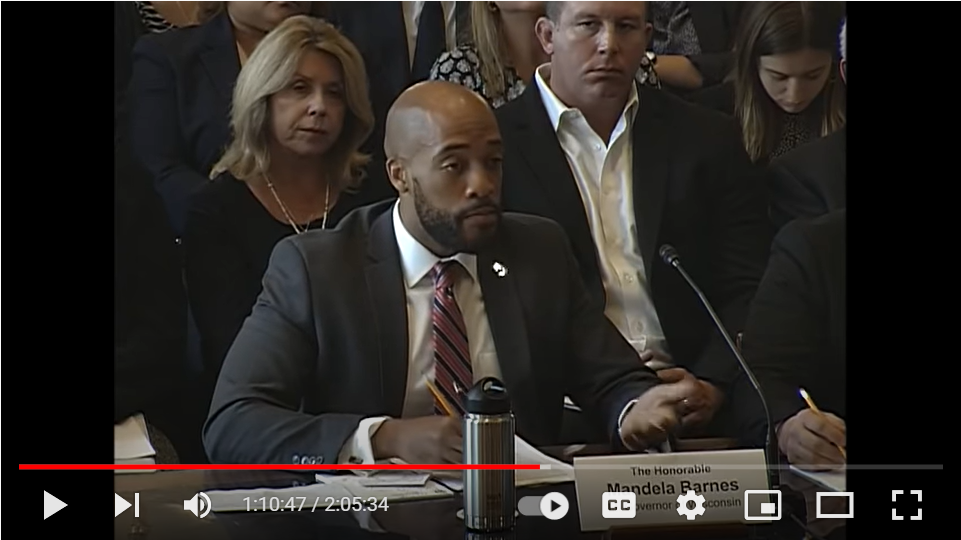
Using little more than buzzwords in his testimony, Davis inflated Mississippi’s “family-centered, multigenerational approach” of “helping the family holistically” and assisting individuals in “finding true self sufficiency.” Congress members praised his concept. Davis was positioning Mississippi’s safety net department as a national leader.
When he returned to Mississippi on June 21, he received a text from the governor. Bryant pressed Davis on whether he and agency employees had stayed at Trump Plaza during their trip and who paid for the rooms. Families First often used welfare funds to pay for these kinds of travel expenses, meaning they weren’t reflected in MDHS spending reports. Davis’ secretary actually held onto the New nonprofit’s credit card, texts show, so she could use it to book flights and hotel rooms.

A text Davis received later from his colleague says MDHS paid for the rooms this time. Yet, Davis told Bryant he paid for the rooms out of his own pocket.
“Wow that’s an expensive place..” Bryant wrote.
“Yes sir. I’m single and no children. Was on my bucket list,” Davis said.
Bryant then told Davis to come to his office. The conversation happened on the same day Bryant reportedly relayed the initial tip of misspending to State Auditor White. A few days later, investigators from the auditor’s office gave Davis a polygraph test where they asked if he’d received any kickbacks from the DiBiases, according to an examination report. Within about two weeks, Davis announced under pressure his abrupt retirement from MDHS.
In August, after Davis left office and the auditor’s investigation was well underway, Davis sent the governor another text.
“I have been ask by the regional office in Atlanta to assist some states with modeling their programs after Mississippi,” Davis wrote.
The disgraced former bureaucrat wanted the governor’s blessing. “That’s sounds great,” Bryant responded.
This is Part 2 in Mississippi Today’s series “The Backchannel,” which examines former Gov. Phil Bryant’s role in the running of his welfare department during what officials have called the largest public embezzlement scheme in state history.
This article first appeared on Mississippi Today and is republished here under a Creative Commons license.
Mississippi News
Ole Miss women get pair of double-doubles and roll to 83-65 March Madness win over Ball State
SUMMARY: Mississippi coach Yolett McPhee-McCuin found solace in returning to a different arena in Waco, Texas, following a disappointing previous tournament experience. The No. 5 seed Ole Miss Rebels redeemed themselves with an 83-65 victory over 12th-seeded Ball State in the NCAA Tournament’s first round. Starr Jacobs led the Rebels with 18 points and 11 rebounds, while Kennedy Todd-Williams and Madison Scott each scored 15 points. Ole Miss dominated rebounding, leading 52-32, and will face fourth-seeded Baylor next. Coach McPhee-McCuin noted the team’s evolution since their last visit and the significance of playing in Texas, where Jacobs feels at home.
The post Ole Miss women get pair of double-doubles and roll to 83-65 March Madness win over Ball State appeared first on www.wjtv.com
Mississippi News
Events happening this weekend in Mississippi: March 21-23
SUMMARY: This weekend (March 21-23), Mississippi offers a range of exciting events. Highlights include Hal’s Marching MALfunction Second Line Stomp and Jessie Robinson’s blues performance in Jackson, as well as the Natchez Food & Wine Festival and the Natchez Little Theatre’s production of *This Side of Crazy*. There are also numerous exhibitions like *Of Salt and Spirit: Black Quilters in the American South* in Jackson and *Gold in the Hills* in Vicksburg. Other events include the 48th Annual Crawfish Classic Tennis Tournament in Hattiesburg, karaoke nights in Laurel, and a variety of family-friendly activities across the state.
The post Events happening this weekend in Mississippi: March 21-23 appeared first on www.wjtv.com
Mississippi News
Events happening this weekend in Mississippi: March 14-16
SUMMARY: This weekend (March 14-16) in Mississippi offers a variety of events. In Jackson, iconic saxophonist Boney James performs at the convention center, while the JXN Food & Wine festival showcases culinary talents. The LeFleur Museum District hosts a “Week of Wonder,” and several exhibitions, including “Of Salt and Spirit,” celebrate Black quilters. Natchez features the Spring Pilgrimage tours, a reenactment of Annie Stewart’s story, and a St. Patrick’s Day celebration. In Hattiesburg, comedian Rob Schneider performs, and various events like a St. Patrick’s Day pub crawl and a talent show will take place throughout the area.
The post Events happening this weekend in Mississippi: March 14-16 appeared first on www.wjtv.com
-

 News from the South - Florida News Feed7 days ago
News from the South - Florida News Feed7 days agoFamily mourns death of 10-year-old Xavier Williams
-

 News from the South - Alabama News Feed5 days ago
News from the South - Alabama News Feed5 days agoSevere storms will impact Alabama this weekend. Damaging winds, hail, and a tornado threat are al…
-

 News from the South - Alabama News Feed4 days ago
News from the South - Alabama News Feed4 days agoUniversity of Alabama student detained by ICE moved to Louisiana
-

 News from the South - Louisiana News Feed6 days ago
News from the South - Louisiana News Feed6 days agoSeafood testers find Shreveport restaurants deceiving customers with foreign shrimp
-

 News from the South - Oklahoma News Feed3 days ago
News from the South - Oklahoma News Feed3 days agoTornado watch, severe thunderstorm warnings issued for Oklahoma
-

 News from the South - Oklahoma News Feed7 days ago
News from the South - Oklahoma News Feed7 days agoWhy are Oklahomans smelling smoke Wednesday morning?
-

 News from the South - West Virginia News Feed6 days ago
News from the South - West Virginia News Feed6 days agoRoane County Schools installing security film on windows to protect students
-

 News from the South - Florida News Feed6 days ago
News from the South - Florida News Feed6 days agoPeanut farmer wants Florida water agency to swap forest land















































